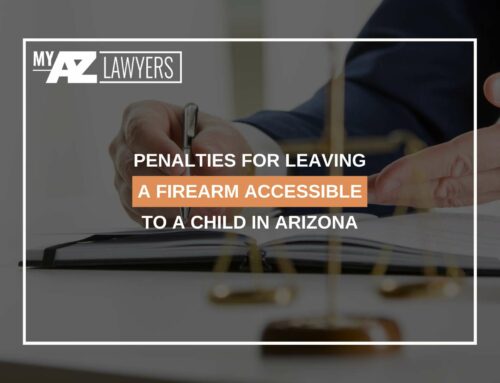Table Of Contents
Can I Make My Spouse Pay My Lawyer Fees In Our Divorce?
Who Pays Attorney Fees In a Divorce?
Getting divorced is hard on families in several ways, one of which is financially. If your spouse is the primary earner in your household, you may have additional concerns about paying expenses during a divorce. It is quite common for one spouse to be able to afford legal fees in an Arizona divorce and not the other.
When that is the case, you may want to request that your ex pay for your legal fees as part of the divorce. The court may order this, regardless of your spouse’s agreement, depending on your circumstances. An experienced Mesa divorce attorney can help you through every step of the divorce process, including requesting that your ex pay your legal fees.

Divorce In Arizona
Divorce, also referred to as a legal dissolution of marriage, is becoming an increasingly common unfortunate fact of life. There are factors that are unique to each case, but common issues in divorce include property division, spousal support, child support, and child custody. In Arizona, property division is conducted using community property laws.
The basic premise of community property is that anything acquired during the marriage- including both assets and debts- should be split evenly between the spouses should they divorce. The definition of “evenly” is where many divorcing couples disagree, and where they can rack up thousands of dollars in attorney’s fees. Property division orders are final and may not be modified in the future.
Child custody and support are important parts of divorce, but unlike property division, may be amended over time. That doesn’t mean they are easy to modify- a modification can only be granted after certain time periods, and only if there has been a substantial and continuing change in circumstances. You need to request a modification as soon as possible after a change in circumstances, as your past-due support payments can’t be retroactively reduced or discharged in bankruptcy.
Many people’s preconceived idea of divorce is a contemptuous legal battle that stretches out for months or years, ending in a dramatic courtroom showdown. This is stressful, can be harmful to any shared children’s development, and is expensive when either spouse retains an attorney. It doesn’t always have to be this way. Some states, like California, offer joint divorce petition filings for uncontested divorces. Arizona is not one of the states that offers this option. However, spouses in an amicable divorce can usually reach an out-of-court agreement with minimal legal assistance. In some situations, it may also be helpful to bring in a mediator to facilitate settlement discussions.
Needs Based Attorney Fees
In many states, especially in community property states, family courts have the authority to order one spouse to pay the other spouse’s attorney’s fees in a divorce. This is most common when there is a significant disparity in income between the spouses. This includes when one spouse doesn’t have any income. If one spouse stayed at home to take care of the house and children so the other spouse could go out and earn an income, it wouldn’t be fair to punish that spouse in the divorce by leaving them without the ability to hire a lawyer. Another reason is because the spouse with an income will be able to replenish the expense of retaining an attorney, while the non-earning spouse will not.
This doesn’t mean the court will automatically force one spouse to pay the other spouse’s attorney’s fees just because one spouse out earns the other. The court may deny such a request if the lower earning spouse still has sufficient income to retain an attorney, or if that spouse will have access to community funds (bank accounts, stocks, etc.) that can be used to pay an attorney.
Penalties Regarding Attorney Fees
Divorces can be acrimonious, but the courts don’t want to deal with petty drama. Not only does it waste the court’s time and resources, but a spouse with a financial advantage may use litigation as an opportunity to burn out the other spouse’s attorney’s fees budget. How might one spouse do this? This could be behavior like constantly filing motions over unimportant matters, missing deadlines to submit documents, or refusing to obey court orders and appear for hearings. Paying an attorney to deal with these kinds of distractions and delays isn’t fair to the spouse who complies with court requirements. As a penalty for this kind of misconduct, also known as bad faith, the judge may order the misbehaving spouse to pay the other spouse’s attorney’s fees.
Two Income Households vs. Single Income Households
As the cost of living increases, less and less households have one spouse in the workforce while the other stays at home without earning an income. This means that family law judges awarding attorney’s fees in a divorce is becoming less and less common. When both spouses work outside the home and have comparable incomes, the courts have little reason to award attorney’s fees in a divorce. However, if one spouse has a high income while the other has a significantly lower income, or works part-time, the judge may still order one spouse to pay the other’s attorney’s fees.
When In The Divorce To Ask For Your Attorney Fees To Be paid?
The most straightforward time to request attorney’s fees is at the end of the case, so that the spouse knows exactly how much to request. However, it may not be possible to wait that long. In that case, the spouse should request “interim” attorney’s fees, so that payments can be made before the divorce is finalized.
What Happens When I Don’t Have The Fees To Pay For An Attorney?
You may be able to request interim attorney’s fees from your spouse while your Arizona divorce is still pending. You may also be able to request an advance on your community property division to pay your attorney’s fees.
Who Determines If The Other Spouse Has To Pay For Attorney Fees In Arizona?
The family law judge assigned to your case will make a determination on whether one spouse should pay attorney’s fees based on the other spouse’s submitted request for such fees.
What Should I Do To Assure I Have The Best Chance At Being Awarded Attorney’s Fees?
Your best chances of being awarded attorney’s fees is by presenting your judge with a clear and persuasive argument of why you should be. Your petition will need to be drafted using applicable state laws, include an accurate calculation of the fees, and should be submitted within a certain time frame. With everything else you probably have going on during a divorce, this can be overwhelming. You shouldn’t shoulder this burden alone, especially because of the possibility of having your spouse pay for your legal fees. Ironically enough, the best way to increase your likelihood of having your spouse pay for your attorney’s fees is by hiring an experienced Arizona family law attorney.
Contact My Arizona Lawyers With Questions Regarding Divorce & Paying For Legal Fees
You shouldn’t roll over and accept everything in a divorce just because your spouse has the financial ability to hire a divorce attorney in Arizona. You could successfully request from the court that your spouse pay for your attorney! My AZ Lawyers offers years of experience achieving ideal outcomes for clients just like you, as well as payment options that almost everyone can afford. For more information, as well as an affordable quote with payment plan options, call or use our online form to schedule your free consultation today.
Arizona Offices:
Mesa Location:
1731 West Baseline Rd., Suite #100
Mesa, AZ 85202
Office: (480) 448-9800
Email: info@myazlawyers.com
Website: https://myazlawyers.com/
Phoenix Location:
343 West Roosevelt, Suite #100
Phoenix, AZ 85003
Office: (602) 609-7000
Glendale Location:
20325 N 51st Avenue Suite #134, Building 5
Glendale, AZ 85308
Office: (602) 509-0955
Tucson Location:
2 East Congress St., Suite #900-6A
Tucson, AZ 85701
Office: (520) 441-1450
Avondale Location:
12725 W. Indian School Rd., Ste E, #101
Avondale, AZ 85392
Office: (623) 469-6603














